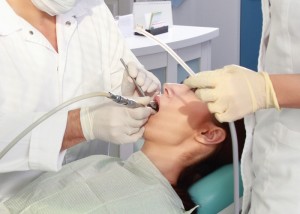Quick Links
Oral Surgery
Oral and maxillofacial surgeries are special areas of dentistry concerned with the diagnosis and surgical treatment of congenital or acquired diseases; dysfunction, defects, or injuries of the mouth, jaws, face, neck, and associated regions.
Some of these issues are:
When Teeth Are Lost
When a tooth must be extracted due to trauma, bone loss, or other reasons, implants may be placed in the bone if your dentist determines that you are a good candidate for implants. Please see our tooth fractures page view different types of fractures that occur in teeth.
Impactions
The wisdom teeth, or third molars, are the most frequently impacted teeth due to lack of space in the jaw. In most cases, wisdom teeth that do not erupt into proper alignment should be extracted. Please visit our wisdom teeth page to see the different types of impactions.
Jaw Alignment
Oral surgery can correct cases where the jaw bones are under- or overdeveloped. Cases where the upper jaw grows either too much or too little and/or the lower jaw grows too much or too little can be surgically corrected and realigned.
TMJ – Temporomandibular Joint
Otherwise known as the TMJ, this joint in front of the ear where the lower jaw pivots is a common problem area. Problems with this joint can cause headache and continuous pain. Lesser cases can be corrected with medication, therapy, and splints. However, more serious cases may require reconstruction of the joint.
Biopsy
When there is a suspicious growth or changed appearance of a section of tissue in the mouth, a biopsy will be performed to determine the origin of the lesion.
Facial Trauma
Oral surgery can help in cases of facial trauma that results from accidents or facial genetic malformation of the jaw and face.



